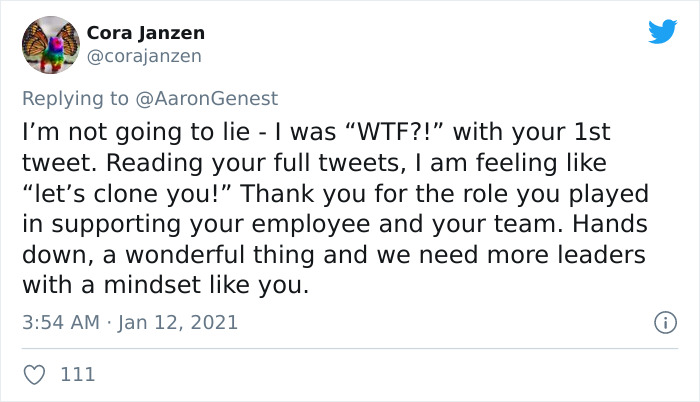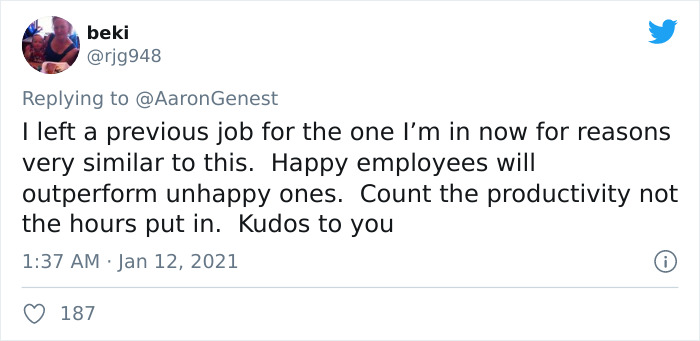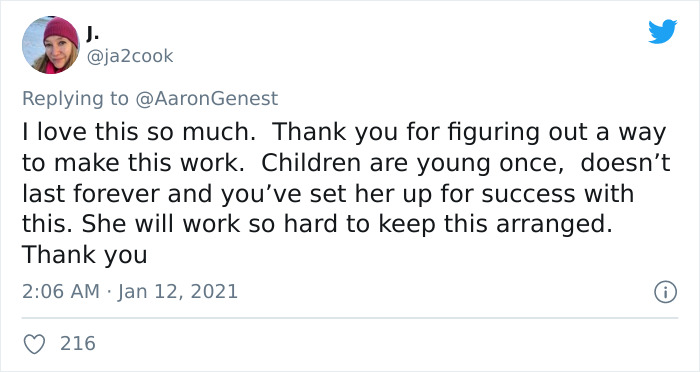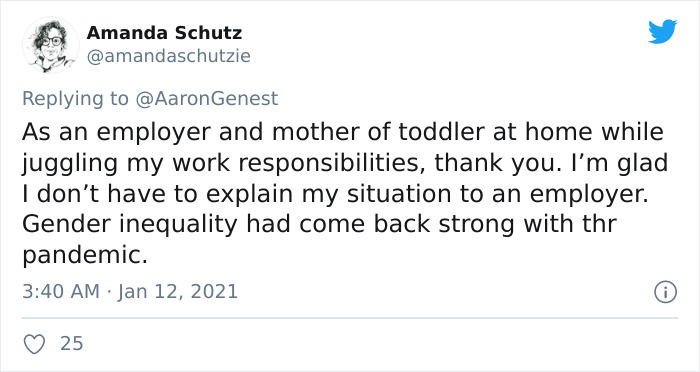Guys, we want to ask one serious question from you. Can you tell us how to differentiate between a good boss and a bad one? You don’t have any idea? No worries, we will help you. A good boss always makes sure that the employees are supported by walking a few extra miles.
This is precisely what Canadian Aaron Genest had done. He is the president of SaskTech and works at Siemens Digital Industries. What he did was that he said no to one of his employees. It happened when she asked him if he could move her to 80 percent time?
Okay, this boss is not that brutal and rude. He has got his reasons why he denied her request. And if you want to know it, keep scrolling.
When a female employee asked her boss if she could move to 80 percent time, he refused. But it’s a story with a wholesome twist

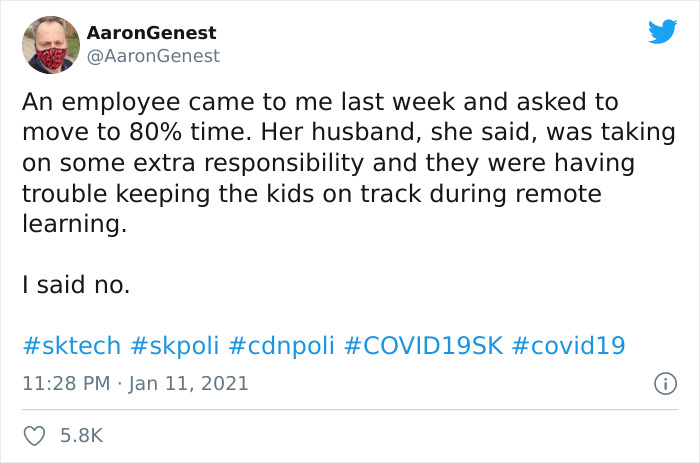
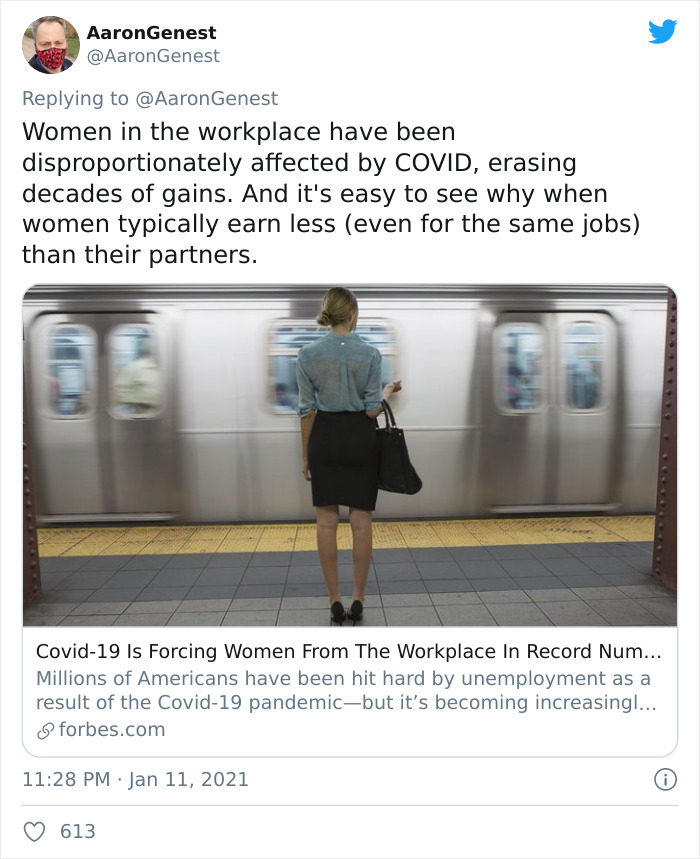
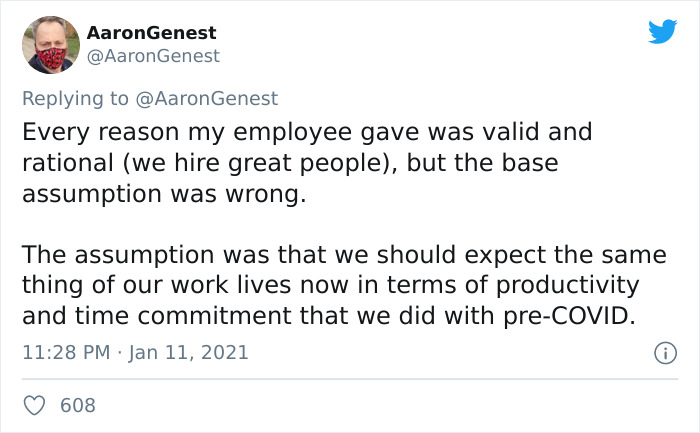
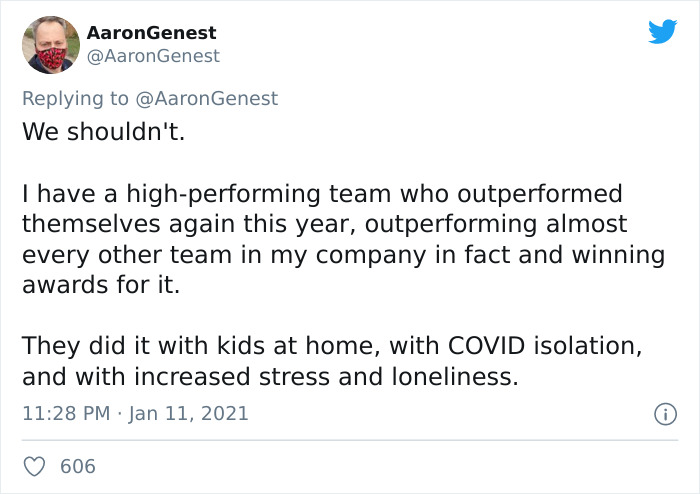
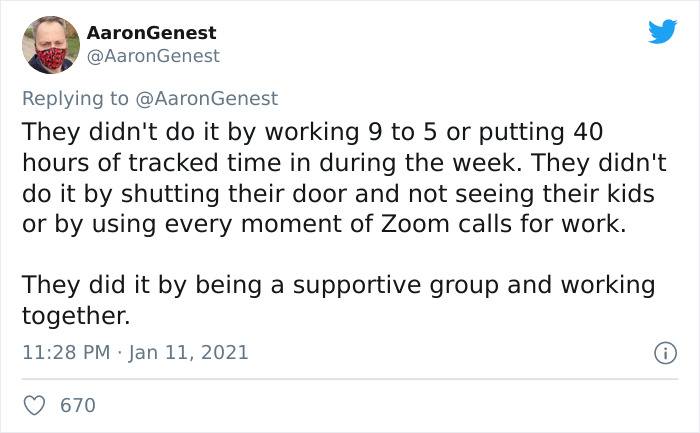
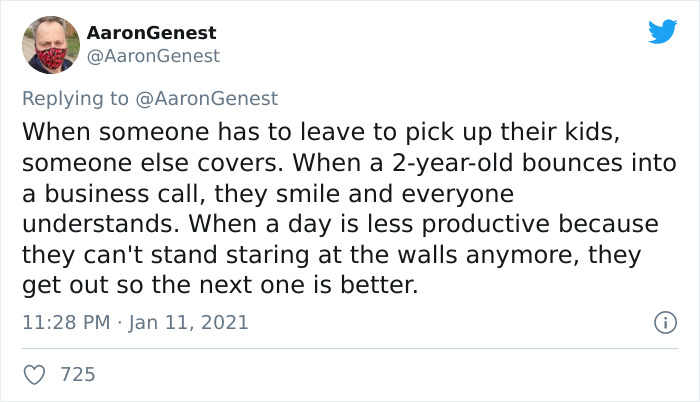
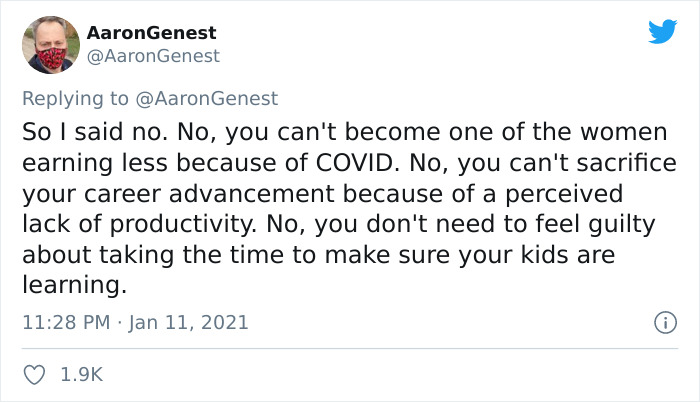
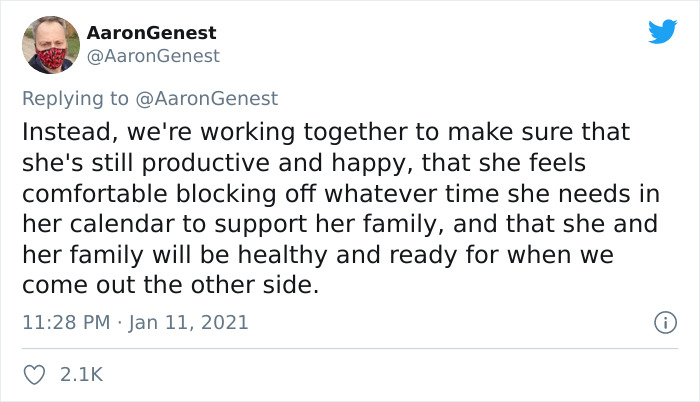
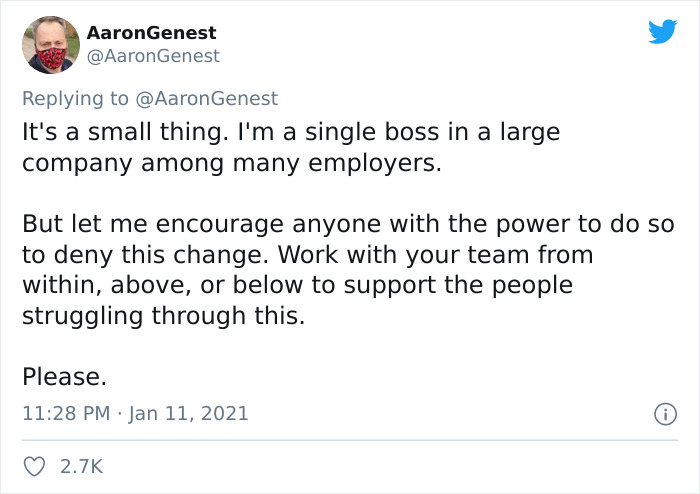

“I’m also pleased that Siemens (my employer, with 350,000 employees) reached out to me from headquarters in Germany. This was to tell me that my message matched their ethic and offered to help manage the deluge,” he said. “I actually didn’t quite realize that I had put the bait and switch into the thread until people pointed it out. I guess I have a bit of a dry sense of humor. And that was my natural approach to storytelling. It turns out that it works.”
Creating equality at home depends on a lot of factors
“Certainly, there’s a role across all levels of society. Normalizing flexible employment opportunities where possible. Will go a long way to helping women achieve parity in high-performing jobs. Especially if you emphasize outcomes over hours. But that ignores the challenges of service jobs, very small businesses, access to education, maternity support, and more.”
“And obviously, the rest of us can think carefully about how we frame these issues and support those around us. But there’s certainly no magic bullet. I’m optimistic that we’ve been heading in the right direction, but there’s a long way to go and the pandemic certainly hasn’t helped.”
Teams supporting each other like small communities is the way forward
“I think the Siemens approach of outcomes over hours and flexible work conditions (40% time at home) is a good one. But the devil is in the details. Lots of jobs have incentives built in that encourage over-performance, creating conditions where those without family responsibilities are naturally situated to be able to contribute more and, in the end, advance more quickly. It’s likely impossible to address this without addressing the constant need for accelerated growth in publicly traded companies—and that’s not likely to change any time soon,” he gave his take on the question.
“Within organizations, small teams can be communities that pull together. When we look at how small communities (cul de sacs, villages, etc.) work together to support those with challenges by contributing without expectation of further recognition, we can see a model of teams within companies that work as a unit,” he said.
“As my team members move through life stages and conditions, they need different supports and have different levels of contribution. Across the team, it’s my hope that, because they’re highly motivated and enthusiastic, we perform highly, even if the highest performer position shifts over time. By recognizing small teams instead of individuals, I think there’s a path forward.”
The pandemic disproportionately affects women
“Women are overrepresented in lower-paying and precarious jobs such as those in retail, service, and hospitality where there is little job security and benefits. Men on the other hand are found in industries that are deemed essential, such as transportation (delivery) and construction,” Professor Ng told us.
“Women reorganize their work around family demands, men often do not”
“Women, even those in professional and managerial jobs, continue to take on a second shift (caring for family) after the first shift at the office. We continue to subscribe to gender roles, even in many egalitarian societies,” the professor said, pointing out that this explains the “persistent pay gap and an underrepresentation of women in senior management and higher-paying jobs.”
“Women reorganize their work around family demands, men often do not. Unequal division of labor is exacerbated when a family could no longer access paid help (COVID restrictions), and women will have to pick up the slack.”
Here’s how people reacted after reading Genest’s story
